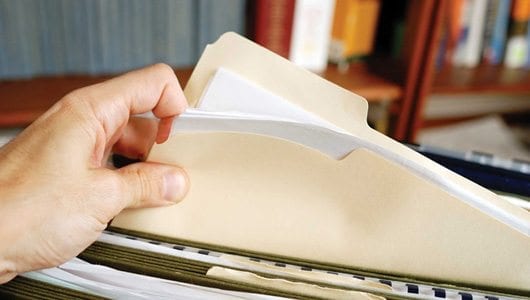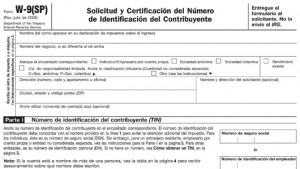
How to keep accurate tax records
The individual or principal in charge of a business operation is responsible to the Federal, State and local governments to be in compliance with all taxing agencies and can be held personally liable for non-payment of certain types of taxes. Some tax laws and procedures vary from state to state, and apply differently to various types of corporate structures (sole proprietor, LLC, S-Corp., C-Corp., etc). Consult a CPA in your area to make sure you understand your responsibilities and keep accurate tax records.
One-time tax records and forms
A Federal Employer Identification Number (FEIN), also know as EIN, indentifies your particular business. It’s advisable and in most cases mandatory for a business to obtain a FEIN so you don’t have to circulate your Social Security number on various business documents. You can apply for a FEIN online at www.irs.gov/businesses.
If you have employees, they must each fill out a Form W-4, which provides an employer with basic information about the employee and defines their tax withholding allowance for both Federal and State personal income tax. You or your accountant will use this information to withhold the proper amount from each employee’s paycheck and to issue W-2’s to your employees at the end of the year.
If you hire subcontractors or other vendors, you must have them fill out a Form W-9. This form will indicate whether or not they will require a Form 1099 at the end of each year. Typically firms that are not incorporated must receive a Form 1099.
A 1099 shows how much you have paid that vendor during the calendar year and you are required to file a copy of any 1099 your company issues with the Internal Revenue Service (IRS). If a vendor requires a Form 1099 and you fail to send one, and they don’t pay the required Federal and State taxes, your company may be liable for the taxes they should have paid and be subjected to non-filing penalties.
Tax records not related to your employees
You must keep tax-related documents that pertain to your business for at least three years. Keep documents longer if possible. If the tax document applies to a physical asset, such as equipment or a vehicle, you must keep all related records as long as you have the asset and for three years after you dispose of the asset.
Try to keep your records organized, alphabetized and separated by calendar years. Following is a typical list of tax-related documents you should retain:
- Accounts Payable ‒ invoices received from any source that has provided your company with goods and/or services
- Accounts Receivable ‒ invoices your company sent to parties for which your firm provided goods and/or services
- All Form W-9s and Form 1099s from/to your vendors
- Annual financial statements (prepared by your accountant)
- Monthly bank statements
- Copies of previous year’s tax returns
- Copies of any documents related to charitable contributions used as tax deductions
Tax documents related to your employees
Payroll-related taxes typically include Federal Unemployment Tax Act (FUTA), and State Unemployment Tax Act (SUTA) taxes. These two taxes are paid by the employer and are based on a percentage of an employee’s gross salary less certain types of withholdings, such as health care and pensions.
Percentages used to determine FUTA and SUTA vary from state to state and from employer to employer, so consult a CPA to make sure you understand your responsibilities. Typically FUTA and SUTA are paid by the employer at the end of each calendar quarter.
Federal Insurance Contributions Act (FICA), which is comprised of FICA-SS (Social Security) and FICA-Med (Medicare), are withheld from the employee’s gross salary and matched by the employer. FICA withholdings must be accounted for and paid by the employer (on the employee’s behalf) to the Federal government. These payments are made online or deposited with a financial institution and the frequency depends on the amount of the liability and when the liability is incurred.
The following records as they relate to your employees should be retained as long as the individual is an employee:
- All employee’s Form W-4s and W-2s
- Payroll records with a list of all withholdings
- Hourly work records or time sheets
Regardless of the size and type of company you operate, your best bet to avoid unforeseen tax consequences is to stay informed about your company and employee related tax liabilities, and keep organized and accurate tax records.
For additional information, visit www.payroll-taxes.com (English only) and www.irs.gov.
—By Bruce Webb


